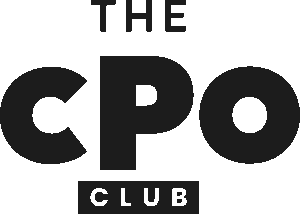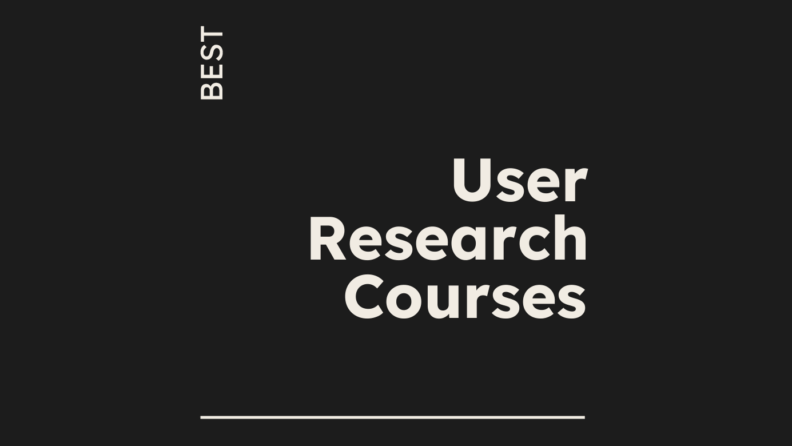Whether you're a product manager chasing stronger discovery practices, a UXer aiming to sharpen your mixed-methods approach, or a team lead allocating your professional development budget—investing in user research courses can be a career accelerant.
With growing demand for research-backed roadmaps, continuous discovery habits, and better synthesis of qual + quant insights, upskilling in user research is no longer optional. It’s what separates teams that build with clarity from those that build with chaos.
These are the programs product teams and UX leaders are actually putting their PD budgets toward in 2025.
Best User Research Courses Shortlist
Here's my shortlist of the 5 best user research courses to take in 2025. I'll cover all these (and more!) in detail below:
- User Research – Methods and Best Practices (The Interaction Design Foundation) - Best for comprehensive methodologies
- User Research Methods (Nielsen Norman Group) - Best for advanced practitioners
- UX Research Course (Uxcel) - Best for interactive learning
- UX Research Methods: Interviewing (LinkedIn Learning) - Best for mastering interviews
- User Experience Research and Design Specialization (University of Michigan) - Best for academic rigor
Best User Research Courses in 2025
I chose these courses based on content quality, instructor expertise, and hands-on value. I also made sure they’re flexible and fit different skill levels and goals—each one is here to help you grow.
1. User Research – Methods and Best Practices (The Interaction Design Foundation) - Best for comprehensive methodologies
This course covers essential user research methods and techniques, with a focus on practical applications for product and UX design. The course material includes real-world case studies and qualitative research approaches to enhance the UX design process.
- Who it’s for: Intermediate UX designers and researchers
- Topics covered:
- Qualitative user research
- Usability testing
- User interviews
- Online, in-person, or both? Online
- Exam required? No
- Duration: 9 weeks; Self-paced
- Hours of instruction: About 33 hours in total
- Eligibility requirements: Intermediate knowledge in UX design
- Recognition: Industry-recognized certificate
- Price: Free for members; flat fee for unlimited courses
What to expect: This course gives you a thorough understanding of user research methods and how to apply them effectively in real-world scenarios. It includes engaging, hands-on projects, and you’ll walk away with not just a certificate but several case studies to build or add to your portfolio.
2. User Research Methods (Nielsen Norman Group) - Best for advanced practitioners
This course offers hands-on exercises and expert guidance that explores advanced user research techniques beyond usability testing, providing a structured approach to selecting and applying methods throughout the UX design process.
- Who it’s for: UX practitioners seeking advanced skills
- Topics covered:
- Interviews
- Ethnographic studies
- Usability benchmarking
- Online, in-person, or both? Online
- Exam required? No
- Duration: 2 days
- Hours of instruction: 6 hours per day
- Eligibility requirements: None
- Recognition: Industry-recognized by UX professionals
- Price: $825 per participant
What to expect: You'll gain advanced skills in user research techniques with practical exercises and expert-led sessions. This course enhances your ability to conduct in-depth research, and you’ll be able to dive deeper during live interactive discussions and Q&As.
3. UX Research Course (Uxcel) - Best for interactive learning
This course teaches learners to develop qualitative and quantitative research skills for making data-informed design decisions. It uses interactive assessments and practical applications to explore the UX research process.
- Who it’s for: UX enthusiasts and designers
- Topics covered:
- User interviews
- Survey design
- Usability testing
- Online, in-person, or both? Online
- Exam required? No
- Duration: Self-paced
- Hours of instruction: 6 hours in total
- Eligibility requirements: None
- Recognition: Course completion certificate
- Price: Subscription-based access
What to expect: You'll experience a blend of theory and practice, refining your research skills through interactive modules. The course includes 23 bite-sized lessons covering core research methods and usability principles. Learners praise its interactive, gamified format for making complex topics easy to grasp.
4. UX Research Methods: Interviewing (LinkedIn Learning) - Best for mastering interviews
This course provides step-by-step guidance on conducting effective UX interviews, from preparation to analysis. Taught by an industry expert, it focuses on practical techniques to gather valuable insights from users.
- Who it’s for: UX researchers and designers
- Topics covered:
- Interview techniques
- Question design
- Data analysis
- Online, in-person, or both? Online
- Exam required? No
- Duration: Self-paced
- Hours of instruction: 1 hour
- Eligibility requirements: None
- Recognition: Completion certificate
- Price: $29.99/month (Subscription-based)
What to expect: The course’s focus on user interviews equips you to design, conduct, and analyze results from UX interviews. It holds a 4.7 out of 5 rating based on over 500 reviews, with learners praising its clarity and practical insights.
5. User Experience Research and Design Specialization (University of Michigan) - Best for academic rigor
This course is an academic-focused program aimed at providing comprehensive knowledge of UX design and research, integrating user research with prototyping and evaluation techniques. It concludes with a capstone project where participants create an interactive product from concept to prototype.
- Who it’s for: Aspiring UX designers and researchers
- Topics covered:
- User-centered design
- Prototyping and wireframing
- UX research methods
- Online, in-person, or both? Online
- Exam required? No
- Duration: 3 weeks; Self-paced
- Hours of instruction: 10 hours a week
- Eligibility requirements: None
- Recognition: University of Michigan certification
- Price: $59/month (Subscription-based)
What to expect: This specialization takes you through the entire product lifecycle. Not only will you develop a product idea and conduct user research, you’ll also pursue product development, and explore relevant areas like project management and design thinking. This course is a great option for kickstarting your UX career!
6. UX Design Research Bootcamp (IQbusiness) – Best free course
This is a short and practical bootcamp designed to teach the fundamentals of UX research through real-world application—for free! It's ideal if you want to gain quick, hands-on experience without committing to a long-term course (or paying).
- Who it’s for: Beginners and professionals new to UX research
- Topics covered:
- Research planning
- Interviewing techniques
- Usability testing
- Online, in-person, or both?: Online
- Exam required?: No
- Duration: 2 days
- Hours of instruction: 8 hours per day
- Eligibility requirements: None
- Recognition: Certificate of completion from IQbusiness
- Price: Free
What to expect: This is a great course for anyone wanting to dip their toes into UX research and design. It covers generative and evaluative research skills, as well as how to mediate bias and synthesize your findings.
7. Introduction to User Experience Principles and Processes (University of Michigan) - Best for beginners
This course introduces the foundational principles and processes of user experience, combining research methods with design practices. It emphasizes creating user-centered designs through iterative testing and prototyping.
- Who it’s for: Beginners in UX design
- Topics covered:
- User interviews
- System evaluations
- Prototyping and sketching
- Online, in-person, or both? Online
- Exam required? No
- Duration: Self-paced
- Hours of instruction: 10 hours
- Eligibility requirements: None
- Recognition: Course completion certificate
- Price: $59/month (Subscription-based)
What to expect: You'll gain a solid introduction to UX principles, learning how to conduct user interviews and design interactive systems. The course's user-centered approach prepares you to create meaningful user experiences.
As one student shared: “Believe me when I say: You'll finish this course orders of magnitude more learned about UX Design than before signing up. If you're looking for an introductory course to UX design, look no further.”
8. UX Research: Journey Mapping (LinkedIn Learning) - Best for journey mapping skills
This course focuses on creating UX journey maps to document and analyze the customer experience from start to finish. It provides practical methods for gathering data, identifying pain points, and aligning business goals with customer needs.
- Who it’s for: UX professionals and designers
- Topics covered:
- Journey mapping techniques
- Analyzing user experiences
- Visual storytelling
- Online, in-person, or both? Online
- Exam required? No
- Duration: Self-paced
- Hours of instruction: 30 minutes
- Eligibility requirements: None
- Recognition: Completion certificate
- Price: Subscription-based access
What to expect: You'll learn to effectively create and utilize journey maps and visualize user interactions in just 30 minutes. It’s quick, focused, and value-packed.
A past student said: "It's a very seamless, self-explanatory course! The teacher is excellent!"
9. Practical UX Research & Strategy (Designership) - Best for strategic insights
Led by Michael Wong, this course emphasizes data-driven methodologies to enhance strategic decision-making in UX projects. It combines industry expert-led lessons with real-world case studies to develop both research and UI design skills.
- Who it’s for: Intermediate UX designers and product managers
- Topics covered:
- Research methodologies
- User insights and analysis
- Business strategies
- Online, in-person, or both? Online
- Exam required? No
- Duration: Self-paced
- Hours of instruction: 8 hours
- Eligibility requirements: Basic UX knowledge and familiarity with Figma (but not required)
- Recognition: Certificate upon completion
- Price: $300
What to expect: The course enhances your ability to communicate effectively with stakeholders and align your design work with business goals. It’s great if you’re looking to level up from an entry-level position or take on more leadership within your role.
10. Using AI for UX Design and Research (LinkedIn Learning) - Best for AI integration
This is a specialized course that explores how artificial intelligence can enhance UX design processes. It covers practical tools, ethical considerations, and strategies to create inclusive and effective AI-driven designs.
- Who it’s for: UX professionals seeking AI skills
- Topics covered:
- AI-driven design tools
- Machine learning applications
- Automating UX processes
- Online, in-person, or both? Online
- Exam required? No
- Duration: Self-paced
- Hours of instruction: 1 hour and 36 minutes
- Eligibility requirements: None
- Recognition: Completion certificate
- Price: $29.99/month (Subscription-based)
What to expect: You'll learn how AI can streamline your UX design process, from automating routine tasks to enhancing user insights. With a 4.6 out of 5 rating from over 6,000 learners, this course is praised for its clarity and practical examples.
One student shared: “Great for beginners! This course gave a great overview of using AI in UX design and research. I enjoyed learning about tools and recommend this course to anyone curious about AI in UX.”
11. User Research and Design (University of Minnesota) - Best for design integration
User Research and Design by the University of Minnesota is a course within the User Interface Design Specialization. This course teaches user research techniques and the fundamentals of early UI design exploration.
- Who it’s for: Aspiring UX designers and researchers
- Topics covered:
- User research methods
- Data analysis
- Survey techniques
- Online, in-person, or both? Online
- Exam required? No
- Duration: Self-paced
- Hours of instruction: 7 hours
- Eligibility requirements: None
- Recognition: Shareable certificate upon completion
- Price: $59/month (Subscription-based)
What to expect: This course prepares you to integrate user-focused strategies into your design projects. It emphasizes translating research into actionable design elements like personas, scenarios, and tasks.
12. Professional Certificate in User Research (UX Design Institute) – Best for building a strong foundation
This certificate program provides an in-depth curriculum on user research, guiding participants through planning, executing, and analyzing research projects. With the support of mentors, it focuses on building a research plan, mastering methods, and presenting insights effectively.
- Who it’s for: Aspiring UX researchers and design professionals
- Topics covered:
- User interviews
- Surveys and usability tests
- Research synthesis and reporting
- Online, in-person, or both?: Online
- Exam required?: Yes
- Duration: 4 months
- Hours of instruction: 3 hours per week
- Eligibility requirements: None
- Recognition: University credit-rated by Glasgow Caledonian University
- Price: €1,950
What to expect: Backed by a university credit rating and offering structured, career-focused training, many students highlight the strong structure and industry relevance of this course’s content. You’ll learn how to plan, conduct, and analyze user research through real-world projects and expert-led lessons.
13. UX Research for Agile Teams (LinkedIn Learning) - Best for Agile teams
This course focuses on lean UX research techniques tailored for Agile environments, integrating iterative research processes into fast-paced development cycles. It provides actionable strategies for recruiting participants, synthesizing insights, and collaborating within Agile teams.
- Who it’s for: UX professionals and Agile team members
- Topics covered:
- Agile user research techniques
- Integrating research into sprints
- Collaborative research methods
- Online, in-person, or both? Online
- Exam required? No
- Duration: Self-paced
- Hours of instruction: 1 hour
- Eligibility requirements: None
- Recognition: Completion certificate
- Price: $29.99/month (Subscription-based)
What to expect: You'll learn how to effectively conduct user research within Agile frameworks and bring UX research into your Agile sprints. If you work in a highly collaborative team, it can really help you bring your expertise into that environment.
One reviewer shared: “[T]his course does a great job of explaining how TEAMS actually function, a missing piece in other videos that focus on the skills and knowledge only.”
14. UX Research Fundamentals: Unveiling User Insights (Udemy) - Best for foundational insights
This course provides a practical introduction to uncovering user insights through UX research. It emphasizes building foundational skills in research techniques and creating actionable reports for stakeholders.
- Who it’s for: Beginners in UX research
- Topics covered:
- User personas
- Research planning
- Data analysis techniques
- Online, in-person, or both? Online
- Exam required? No
- Duration: Self-paced
- Hours of instruction: 1 hour and 30 minutes
- Eligibility requirements: None
- Recognition: Completion certificate
- Price: $19.99
What to expect: You'll learn to create user personas and plan research effectively. This course equips you with the essential tools to start conducting user research.
One student remarked: "This course is exactly what I needed for my case study. The content is concise, and the instruction is excellent. I strongly recommend this course to others."
15. User Experience Research (UCLA Extension) - Best for in-depth analysis
This user research course is a comprehensive course designed to teach key concepts in evaluating user experiences. It's aimed at those looking to deepen their understanding of user research methodologies and is part of UCLA Extension’s Design Communication Arts and User Experience certificate programs.
- Who it’s for: Aspiring UX researchers and designers
- Topics covered:
- Contextual observation
- Heuristic analysis
- Usability testing
- Online, in-person, or both? Online
- Exam required? No
- Duration: 11 weeks
- Hours of instruction: Not specified
- Eligibility requirements: Completed “X 481.99AF User Experience I” course
- Recognition: Certificate as part of a broader program
- Price: $875
What to expect: You'll learn to apply various research methods and enhance your capability in UX research and making impactful contributions to your projects. Because this course is part of broader certification programs, it’s worth considering whether that’s something you want to invest in.
16. Agile User Experience Design and Research (LinkedIn Learning) - Best for Agile design
This course explores how UX design and research integrate into Agile workflows, focusing on strategies for improved collaboration within iterative frameworks. It highlights practical approaches to align UX processes with Agile methodologies like Scrum and Kanban.
- Who it’s for: UX professionals and Agile team members
- Topics covered:
- Agile UX methodologies
- Rapid prototyping
- User feedback integration
- Online, in-person, or both? Online
- Exam required? No
- Duration: Self-paced
- Hours of instruction: 1 hour
- Eligibility requirements: None
- Recognition: Completion certificate
- Price: $29.99/month (Subscription-based)
What to expect: You'll learn to effectively incorporate UX design and research within Agile frameworks. This course provides practical strategies for rapid prototyping and integrating user feedback, and its 1-hour time commitment makes it easy to fit into your schedule.
17. User Research For Design (Udemy) - Best for design-focused research
This course provides practical techniques for conducting user research to create audience-focused product designs. It covers methods like card sorts, journey mapping, user testing, and task analysis to uncover user needs and behaviors.
- Who it’s for: Beginners and design professionals
- Topics covered:
- Developing user personas
- Conducting user interviews
- Scenario documentation
- Online, in-person, or both? Online
- Exam required? No
- Duration: Self-paced
- Hours of instruction: 2 hours
- Eligibility requirements: None
- Recognition: Completion certificate
- Price: $84.99
What to expect: You'll learn to create detailed user personas, conduct effective interviews, and improve your design projects and enhance user experience. Rated 4.3 out of 5 stars, students appreciate its clarity and actionable insights.
18. Remote User Research (Nielsen Norman Group) - Best for remote methodologies
This specialized course focuses on conducting user research effectively in remote settings. It teaches how to plan, execute, and analyze remote user research using synchronous and asynchronous methods. It focuses on selecting the right tools, recruiting participants, and avoiding common pitfalls in remote studies.
- Who it’s for: UX professionals and researchers
- Topics covered:
- Remote usability testing
- Online surveys
- Remote interview techniques
- Online, in-person, or both? Online
- Exam required? No
- Duration: 1 day
- Hours of instruction: Self-paced
- Eligibility requirements: None specified
- Recognition: Completion certificate
- Price: From $850
What to expect: You'll gain practical knowledge on how to conduct user research remotely. You’ll get access to real-world remote studies to learn from as well as templates and examples to use in your own research. Individual and team activities allow you to connect with peers and apply your learnings.
19. UX Foundations: Research (LinkedIn Learning) - Best for developing baseline skills
This user research course is an introductory, 1.5 hour course designed to teach the basics of user research. It's perfect for beginners who want to understand the core principles of UX research and learn how to apply them in real-world scenarios.
- Who it’s for: Beginners in UX design and research
- Topics covered:
- User research planning
- Data collection methods
- Analyzing user feedback
- Online, in-person, or both? Online
- Exam required? No
- Duration: Self-paced
- Hours of instruction: 1 hour and 37 minutes
- Eligibility requirements: None
- Recognition: Completion certificate
- Price: $29.99/month (Subscription-based)
What to expect: You'll gain a solid understanding of user research fundamentals. This course will equip you with the skills to gather and analyze user feedback, and you’ll walk away with a certificate to demonstrate the knowledge you’ve gained.
As one student put it: “Easy to follow for beginners to get the overall idea of UX Research.”
How to Choose a User Research Course
It can be challenging to narrow down the right user research course for you. Here are some factors to consider as you decide:
- Identify Your Goals: Determine what you want to achieve with the course. Are you looking to start a career in UX, or are you aiming to enhance specific skills or develop your leadership capabilities?
- Assess Your Skill Level: Choose a course that matches your current expertise. Beginners should look for foundational courses, while experienced professionals might seek advanced topics.
- Research Course Content: Look at the syllabus and topics covered. Does it align with your learning objectives? Check for practical applications and real-world examples.
- Evaluate Instructor Expertise: Investigate the background of the instructors. Are they industry professionals with relevant experience? This can enhance your learning.
- Read Reviews and Testimonials: Look for feedback from past students. Their experiences can provide insights into the course's effectiveness and potential drawbacks.
- Consider Flexibility and Format: Decide if you need an online, in-person, or hybrid format. Consider your schedule and learning preferences to find the best fit.
User Research Courses: FAQs
Have questions about user research courses in general? Take a look at the common questions I’ve answered below.
How can I tell if a course is industry-recognized?
Look for courses that offer certifications from reputable institutions or are accredited by recognized organizations. These courses often highlight partnerships with industry leaders or professional bodies. Check if the course is mentioned in industry forums or recommended by professionals in the field.
What should I expect in terms of cost?
Course prices vary widely depending on the provider, format, and depth of content. Online courses might offer more budget-friendly options, while in-person or specialized courses may cost more. Look for discounts or financial aid options, especially if you’re on a tight budget.
How do I know if a course offers practical experience?
Examine the course syllabus for hands-on projects, case studies, or real-world applications. Courses that include assignments or portfolio-building exercises provide practical experience. If possible, reach out to former students to ask about the practical aspects of the course.
Can I interact with instructors during the course?
Some courses offer live sessions, Q&A opportunities, or forums where you can interact with instructors. Check the course description for details on instructor availability. Interactive courses can enhance your learning through direct feedback and support.
Is it possible to balance a course with a full-time job?
Many courses are designed to accommodate working professionals, offering flexible schedules or self-paced options. Consider the course’s time commitment and structure to ensure it fits with your work schedule. Prioritize courses that allow you to learn at your own pace.
What's Next?
Don't forget to subscribe to our newsletter for more product management resources and guides, plus the latest podcasts, interviews, and other insights from industry leaders and experts.



